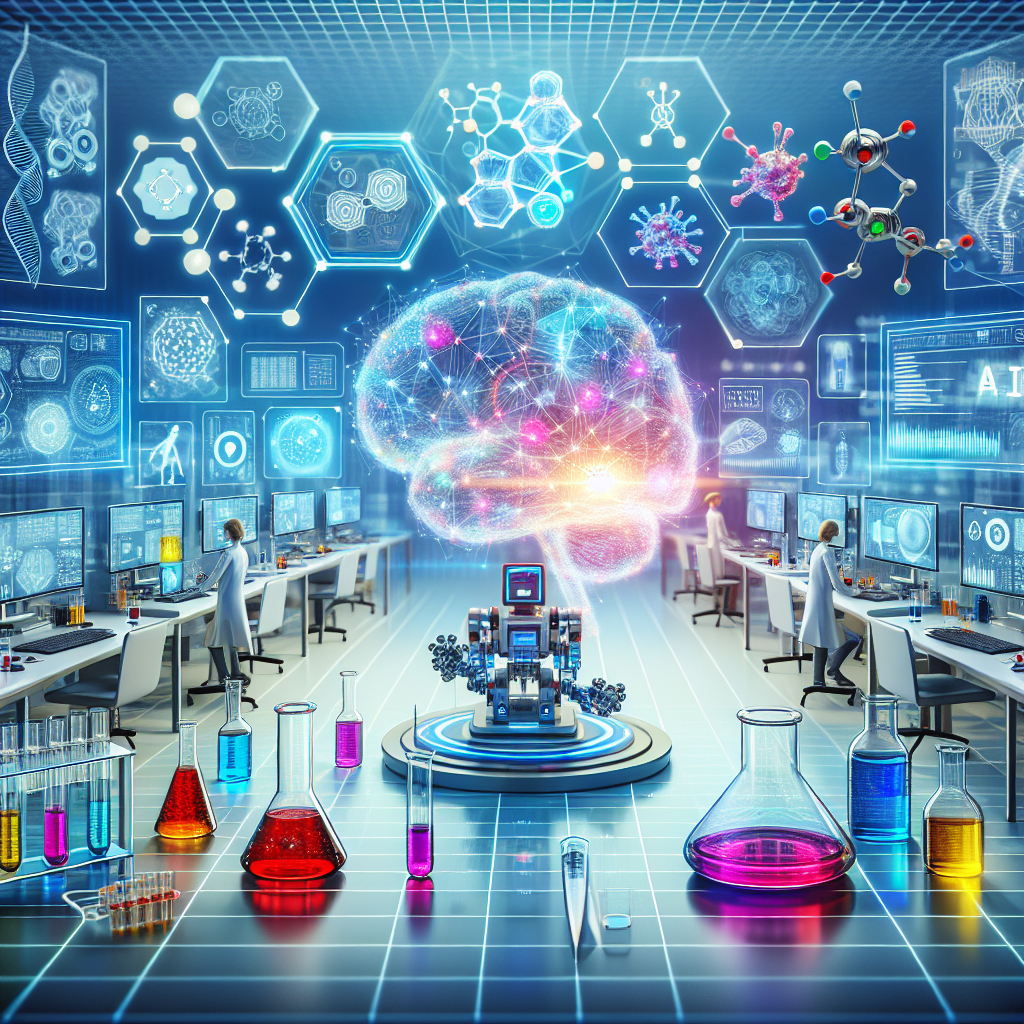AI Deployment in Drug Discovery: Accelerating Innovation
In recent years, the field of drug discovery has been revolutionized by the use of artificial intelligence (AI) technologies. These advanced tools have the potential to significantly accelerate the process of drug development, leading to the discovery of new treatments for a wide range of diseases. AI deployment in drug discovery has the ability to streamline the identification of potential drug candidates, optimize clinical trial design, and improve patient outcomes.
The traditional drug discovery process is time-consuming, costly, and often inefficient. It can take years for a new drug to go from the initial discovery phase to clinical trials, and even longer to reach the market. This lengthy timeline can be a major hurdle for patients in need of life-saving treatments. However, with the advent of AI technologies, researchers are now able to analyze vast amounts of data in a fraction of the time it would take using traditional methods.
One of the key ways in which AI is being used in drug discovery is through the analysis of large datasets. AI algorithms are able to sift through massive amounts of data, including genetic information, chemical structures, and clinical trial results, to identify potential drug candidates. By analyzing this data, AI can help researchers to predict which molecules are most likely to be effective in treating a specific disease, saving time and resources in the drug development process.
Another way in which AI is accelerating drug discovery is through the optimization of clinical trial design. AI technologies can help researchers to design more efficient and effective clinical trials by identifying patient populations that are most likely to respond to a particular treatment. This can help to reduce the time and cost of clinical trials, allowing promising drug candidates to move more quickly through the development pipeline.
AI deployment in drug discovery is also leading to the development of personalized medicine. By analyzing individual patient data, including genetic information and treatment history, AI algorithms can help to identify the most effective treatments for specific patients. This personalized approach to medicine has the potential to improve patient outcomes and reduce the side effects of treatments.
In addition to accelerating the drug discovery process, AI technologies are also helping to identify new uses for existing drugs. By analyzing large datasets of drug interactions and patient outcomes, AI algorithms can help researchers to uncover new indications for drugs that are already on the market. This repurposing of existing drugs can help to speed up the development of new treatments and reduce the cost of drug development.
Overall, the deployment of AI in drug discovery has the potential to revolutionize the way that new treatments are developed and brought to market. By accelerating the drug discovery process, optimizing clinical trial design, and enabling personalized medicine, AI technologies are helping to improve patient outcomes and bring new treatments to market more quickly.
FAQs:
Q: What are the main benefits of using AI in drug discovery?
A: AI technologies can help to accelerate the drug discovery process, optimize clinical trial design, and enable personalized medicine. By analyzing large datasets and identifying potential drug candidates, AI can help researchers to bring new treatments to market more quickly and improve patient outcomes.
Q: How is AI being used to identify potential drug candidates?
A: AI algorithms are able to analyze large datasets of genetic information, chemical structures, and clinical trial results to predict which molecules are most likely to be effective in treating a specific disease. This can help researchers to identify potential drug candidates more quickly and efficiently than traditional methods.
Q: How is AI being used to optimize clinical trial design?
A: AI technologies can help researchers to design more efficient and effective clinical trials by identifying patient populations that are most likely to respond to a particular treatment. This can help to reduce the time and cost of clinical trials, allowing promising drug candidates to move more quickly through the development pipeline.
Q: How is AI being used to develop personalized medicine?
A: By analyzing individual patient data, including genetic information and treatment history, AI algorithms can help to identify the most effective treatments for specific patients. This personalized approach to medicine has the potential to improve patient outcomes and reduce the side effects of treatments.
Q: What are some examples of successful AI deployments in drug discovery?
A: There have been several successful examples of AI deployments in drug discovery, including the identification of new drug candidates, the optimization of clinical trial design, and the development of personalized medicine. These technologies have the potential to revolutionize the way that new treatments are developed and brought to market.

